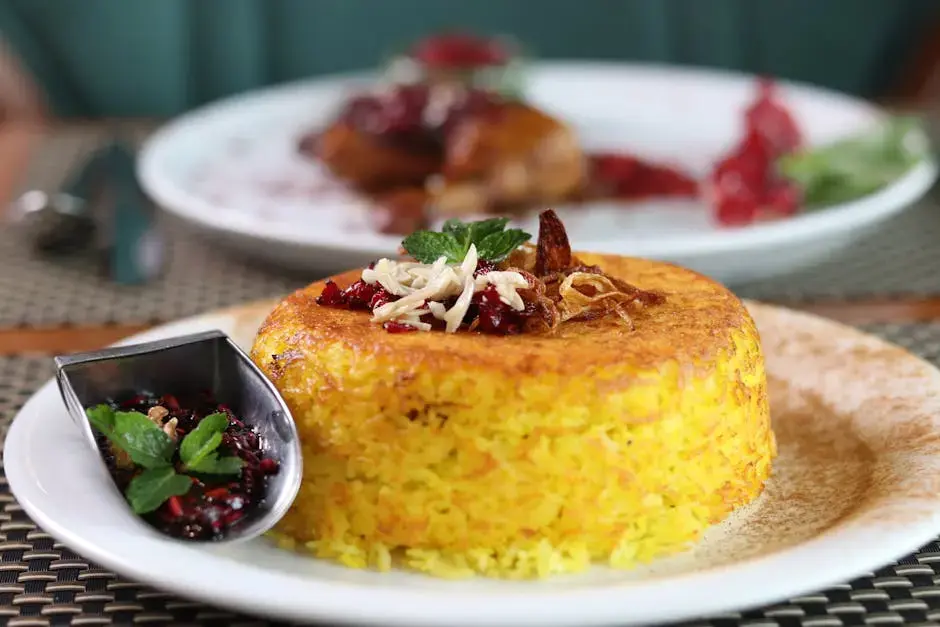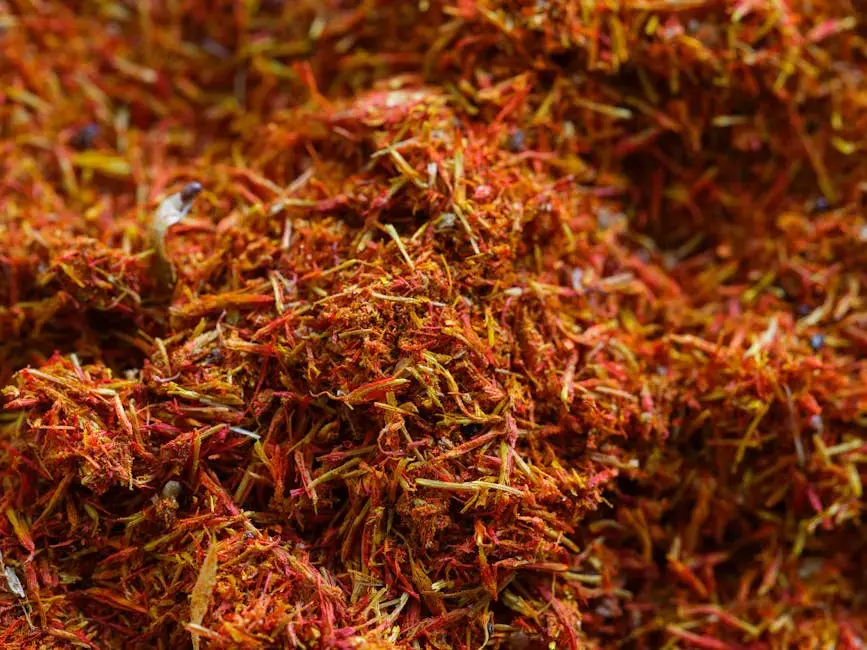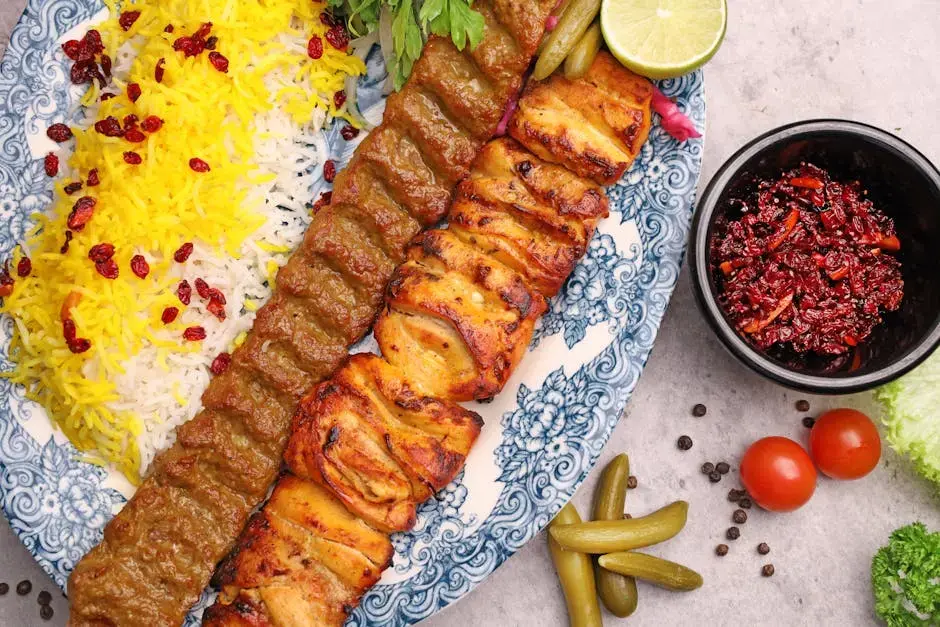Are There Healthy Vegetarian Options in Persian Cuisine?
- Chelo
- Dec 27, 2024
- 3 min read
Persian cuisine is renowned for its rich flavors, aromatic spices, and vibrant colors. But for those seeking healthy vegetarian options, you may wonder what dishes can satisfy both your palate and nutritional needs. In this FAQ, we'll explore delicious and wholesome vegetarian choices found in Persian cooking, helping you discover how to enjoy this flavorful cuisine while maintaining a healthy lifestyle.

Understanding Persian Cuisine
Persian cuisine reflects a rich tapestry of history and culture, where both flavor and presentation matter. Central to this culinary tradition is the use of fresh ingredients, particularly herbs, vegetables, and legumes. This makes it not only a treat for the senses but an excellent choice for health-conscious individuals.
One of the hallmarks of Persian cooking is the careful balance of flavors. Sweet, savory, and tangy elements create an exquisite dining experience. While many might think of meat when they think of Persian food, there’s more to explore. Vegetarian dishes have their own unique charm and are often rich in nutrients.
At the heart of Persian cuisine is the concept of sharing meals, which brings families and friends together. This collective enjoyment of diverse dishes fosters a communal atmosphere that enhances the dining experience. Plus, it allows for a greater variety of healthy vegetarian options to be sampled.
Key Ingredients in Healthy Vegetarian Dishes
The foundation of many healthy Persian dishes lies in the use of fresh vegetables. Ingredients such as eggplant, zucchini, and a plethora of leafy greens are staples in the cuisine. These vegetables not only add vibrant colors to your plate but also boast impressive health benefits.
Legumes play a pivotal role as well, providing protein and fiber that support a well-rounded diet. Dishes like Ghormeh Sabzi, a herb-based stew, often incorporate beans which contribute to your daily nutritional needs while maintaining a delectable taste.
Moreover, fragrant spices like saffron, turmeric, and cinnamon are frequently used in Persian dishes. These spices not only elevate flavors but also are known for their numerous health benefits, adding yet another layer of wholesomeness to vegetarian meals.
In addition to vegetables and legumes, Persian cuisine utilizes an array of nuts and seeds. They add crunch and additional nutrients, creating a balanced profile of flavors and textures. Walnuts, for instance, are often used in dishes like the Zereshk Polo or served as snacks, providing healthy fats.
Popular Vegetarian Dishes to Try
For newcomers to Persian cuisine, Fesenjan is a must-try. This rich, savory stew is made with ground walnuts and pomegranate molasses, offering a delightful sweet and sour taste. It's commonly served over rice and is as nutritious as it is flavorful.
Another excellent dish is Kashk-e Bademjan, a warm and flavorful eggplant dip, garnished with caramelized onions and herbs. Served with fresh bread, it serves as a delightful appetizer and makes for a great healthy snack option.
Don’t overlook the various rice dishes either! Persian rice or Polo can be made using a variety of spices and vegetables. *Sabzi Polo*—rice with herbs—is a popular option, particularly during the Persian New Year celebrations.
In addition, salads like Shirin Salad, which is fresh and zesty, and made with a variety of herbs, tomatoes, and onions, are wonderful accompaniments. These dishes incorporate fresh ingredients and highlight the essential Persian flavors while adhering to a healthy diet.
Nutritional Benefits of Persian Vegetarian Cuisine
The emphasis on vegetables and legumes in Persian vegetarian dishes provides ample vitamins, minerals, and fiber. Consuming a diet rich in these nutrients helps to maintain good digestive health and supports overall well-being.
Moreover, the use of healthy fats from nuts and olive oil in many recipes contributes to heart health. These fats are essential for maintaining a balanced diet, promoting good cholesterol levels while providing a hearty texture and flavor.
The spices found in Persian cuisine also offer anti-inflammatory benefits, which contribute to long-term health when included regularly in your meals. Ingredients like turmeric are celebrated for their ability to foster a healthy immune system.
Finally, the act of sharing meals in Persian culture reinforces social connections, which is an essential aspect of mental health. Enjoying these healthy vegetarian dishes while bonding with family and friends makes for a wholesome dining experience.
Final Thoughts on Healthy Vegetarian Options in Persian Cuisine
In summary, Persian cuisine offers a variety of healthy vegetarian options that are both nutritious and delightful. From hearty stews to fresh salads and flavorful rice dishes, there's something for everyone to enjoy without compromising on health. Next time you crave a meal that’s both satisfying and wholesome, consider exploring these vegetarian Persian delights.




Comments